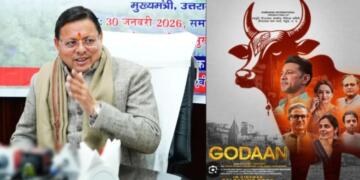Among the many strategies for managing risk and optimizing returns in the constantly changing world of finance and investments, portfolio diversification becomes particularly important. To lessen the negative effects of a single asset’s poor performance on the portfolio as a whole, diversification entails distributing investments across a number of asset classes. This practice is critical in today’s volatile market, where unforeseen events can significantly affect asset values.
The journey of Nikhil Jarunde serves as an example of the value and efficacy of portfolio diversification. With a background in electrical and electronics, he discovered his passion for finance while pursuing a bachelor’s degree. This led him to delve into the world of investing, inspired by financial icons like Benjamin Graham and Warren Buffett. His career accomplishments have demonstrated the importance of a diversified investment strategy over time.
At Futures First Info Services Private Limited, Jarunde quickly rose through the ranks, leveraging technologies such as advanced data analytics and AI. He played a crucial role in developing a trading algorithm for derivatives futures using Machine Learning Regression models and Natural Language Processing (NLP). This algorithm, which incorporated historical market data, technical indicators, and macroeconomic factors, was a commercial success and significantly reduced the firm’s risk exposure. Another notable achievement was building an algorithm to trade commodity spreads, such as crude oil versus natural gas, which balanced the portfolio and reduced vulnerability to single commodity price swings.
Moving to UNICORP INFO SOLUTIONS PRIVATE LIMITED, Jarunde demonstrated his leadership by recruiting and training a team of analysts who achieved impressive profit increases. Here, he collaborated with programmers to create a comprehensive tool for managing a diversified portfolio of derivatives across multiple asset classes. With the help of this tool, risk-adjusted returns increased by 30%, demonstrating the value of diversification and thoughtful asset allocation.
Nikhil Jarunde developed his leadership abilities even more at OSTC GROUP PRIVATE LIMITED, where he oversaw US agriculture and soft commodity divisions. His efforts resulted in achieving an annual target ROI of 25% in just ten months. Along with creating financial models for a variety of portfolios, he also demonstrated the effectiveness of hedging and systematic investing by producing large returns.
While pursuing an MBA at Boston University, during this first semester, Jarunde’s team won the Venture Capital case competition called Battle of the Boutiques, where he was the key strategist overlooking growth projections and M&A strategies. His team placed among the top four finalists in the Kellogg-Morgan Stanley Sustainability Investment Challenge 2022, in which 251 students from 51 schools and 35 countries, comprising 77 teams, took part in the event during his fourth semester. Here, he was in charge of creating a financial model that would show the Seaweed Investment Fund’s resource allocations, budget planning, revenue, and growth forecast. These successes served as evidence of the importance of a well-rounded investment strategy and showed that he could apply diversification tactics in competitive environments.
His impact is visible in professional settings through measurable metrics. For example, at Futures First, his algorithms increased overall portfolio returns by balancing risk across various commodities. At UNICORP, the diverse management tool resulted in consistent returns, while at OSTC, the dynamic hedging algorithm reduced risk exposure, resulting in more stable returns.
Jarunde’s work has not been without challenges. One major hurdle was developing an algorithm to trade commodity spreads amid the volatile and complex commodity markets. By integrating historical price data and seasonal patterns, and using advanced machine learning algorithms, he and his team identified profitable spread opportunities, reducing single commodity price swings and enhancing overall returns.
Another significant challenge was building an algorithmic tool to capture arbitrage opportunities between WTI-Brent spreads. Ensuring data accuracy and reliability was paramount. Through robust data integration and leveraging advanced machine learning techniques, his team increased trading profits by 30% and reduced execution time by 50%. Developing a dynamic hedging algorithm for equity options presented operational challenges. By implementing a real-time data acquisition system and predictive models, Jarunde’s efforts minimized risk exposure and achieved a stable 20% ROI.
His insights into portfolio diversification emphasize the value of a strategic, data-driven approach. He advocates for utilizing big data and machine learning to enhance diversification strategies and reduce unsystematic risk. Current trends, such as incorporating alternative investments and ESG criteria, align with his vision of a diversified and resilient portfolio. Looking ahead, he anticipates AI-driven personalization and blockchain technology to further refine and secure investment strategies.
Alongside his accomplishments, he has authored publications on subjects like “Understanding The impact of financial decisions on mental health and well-being” and “Exploring the use of financial technology (FinTech) tools to optimize investment decisions.”
As an experienced professional in this field, Jarunde’s key insights emphasize the importance of a strategic and data-driven approach. To him, diversification is not merely about spreading investments across different assets but ensuring those assets have low or negative correlations to reduce risk effectively. Leveraging advanced analytics and machine learning models allows for more precise identification of these correlations and optimizes asset allocation dynamically.
Jarunde advises experts in the field to keep learning new things and staying up-to-date on market trends and technological developments in order to continuously improve their diversification strategies. In order to create resilient and adaptive portfolios, he also advises taking a holistic approach that incorporates modern technological tools with conventional financial analysis.
Lastly, according to Nikil Jarunde, portfolio diversification is an essential part of a successful investment strategy. Data-Driven Diversification, which involves using big data and machine learning to analyze and predict asset correlations, improves the accuracy of diversification strategies and lowers unsystematic risk. Real-time risk assessment tools integrated into the portfolio management framework guarantee ongoing monitoring and adjustment, protecting against market volatility. Diversifying an investor’s portfolio across asset classes can help them minimize risk and maximize returns. Nikhil Jarunde’s achievements and career highlight the value of diversification and offer insightful advice for both seasoned and novice investors.





























